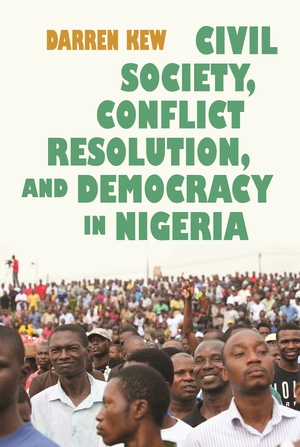"Jackie Smith and Ernesto Verdeja have produced a compelling and timely volume calling for an epistemic shift in peace research and policy. Detailing the structural violence of neoliberal globalization and its framing of approaches to conflict and post-conflict situations, the authors switch focus from elites and their security interests to civil society and social justice movements as the foundation for enduring peacebuilding. This volume effectively redefines the field of peacebuilding as an emancipatory process instead of a legitimation of extant power relations."—Philip McMichael, professor of development sociology, Cornell University
"This book puts forward the important argument that peacebuilding is not just about what happens at local war-torn levels; it is global policies that matter. In particular, groups committed to humanitarian or human security goals can only have a marginal impact if they fail to challenge the dominant neo-liberal discourse. The argument is substantiated through several fascinating themes and cases contained in the individual chapters."—Mary Kaldor, professor of global governance, London School of Economics and Political Science
"A very timely intervention . . . . tackles the difficult problems associated with the emergence of humanitarian organizations that weaken both the state and social movements, particularly under conditions of structural violence."—William G. Martin, author of Making Waves: Worldwide Social Movements, 1750–2005
Description
Each year, governments spend billions of dollars on peacekeeping efforts around the world, and much more is spent on humanitarian aid to refugees and other victims of armed struggle. Yet research shows that nearly half of all countries experiencing civil war see renewed violent conflict within five years of a peace agreement. How do we account for such a poor track record? The authors in this volume consider how global capitalism affects fragile peace processes, arguing that the international economic system itself is a major contributor to violent conflict. By including the work of anthropologists, economists, religious studies experts, sociologists, and political scientists, this book presents a broad yet thorough exploration of the complexities of peacebuilding in a global market economy. Included in the volume are specific studies of Africa, Asia, and the Middle East, as well as considerations of conflicts on the global scale.
About the Author
Jackie Smith is Associate Professor of Sociology and Peace Studies at the University of Notre Dame and a senior fellow in the school’s Gender Studies program. She has edited and co-edited a number of works on globalization, including co-editing a volume Transnational Social Movements and Global Politics published by Syracuse UP in 1997. Ernesto Verdeja is Assistant Professor of Political Science and Peace Studies at the University of Notre Dame, a faculty fellow at their Kellogg Institute for International Studies and a faculty fellow at the school’s Nanovic Institute for European Studies. Temple UP published his Reconciliation in the Aftermath of Political Violence in 2009.
6 x 9, 320 pages
July 2013


